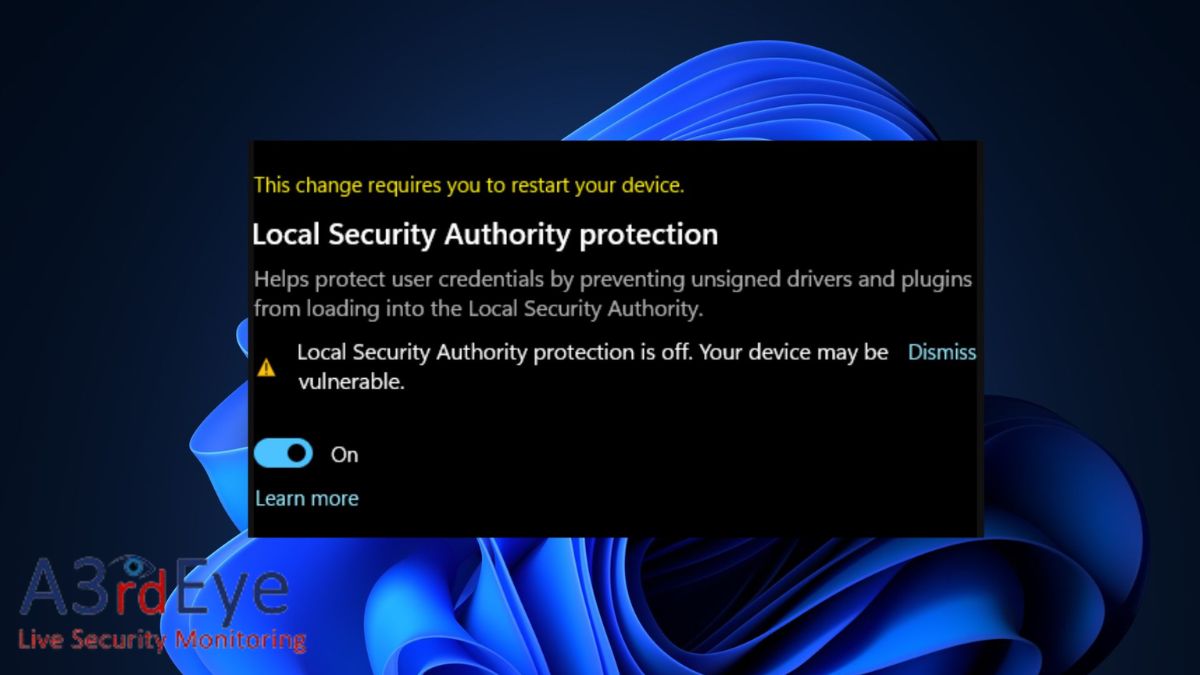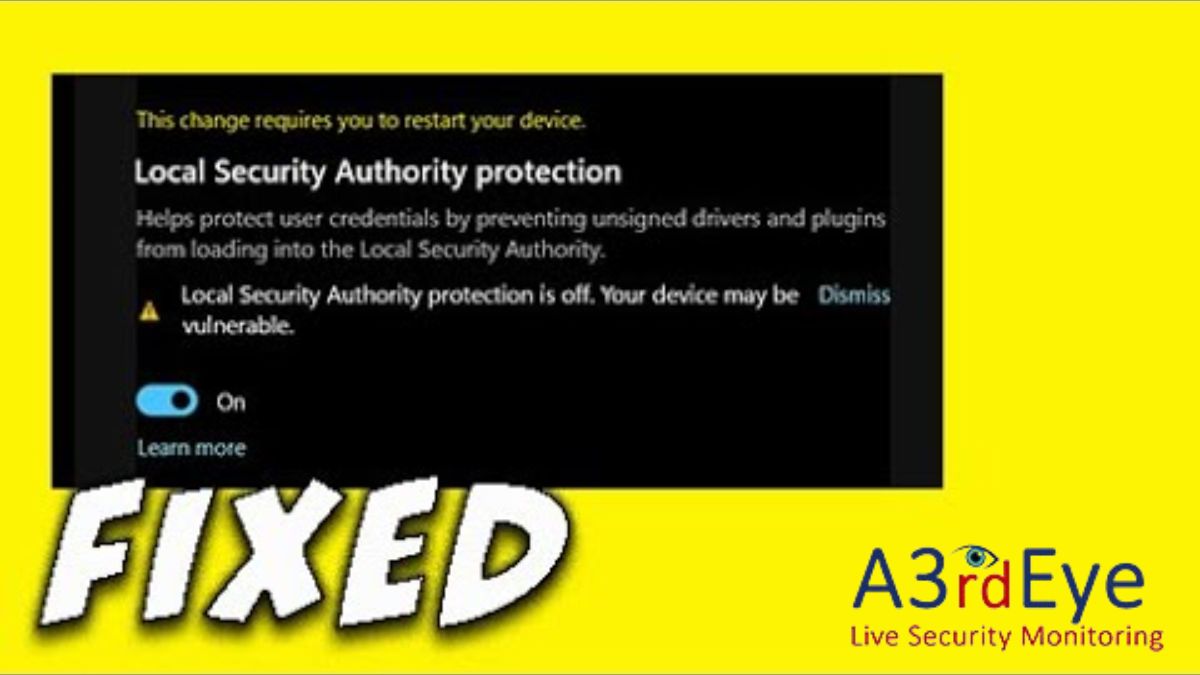
Local Security Authority Protection is Off Threats and Solutions
Local Security Authority Protection is Off Threats and Solutions Windows’ security architecture relies heavily on Local Security Authority Protection or LSAP. It acts as a security authority by checking credentials at login time to ensure only legitimate users are granted access. When keeping user accounts and the entire system safe, LSAP is essential.
It’s Clear That Protection From Your Local Authority’s Security Has Been Disabled
Indicating a security hole in your system, the notice “Local Security Authority Protection is Off” should give you pause if you see it. This notice appears whenever an attempt is made to access a system without proper authentication.
Potential Dangers and Weak Spots
System security is compromised when Local Security Authority Protection is disabled or compromised. Bad actors can use this flaw to obtain access to the system, steal data, plant malware, or gain administrative privileges. Data breaches, financial losses, and tarnished reputations could result from this.
The Most Frequent Roots of Protection Problems in Local Security Agencies
The “Local Security Authority Protection is Off” error may have multiple causes:
Incorrect Security Configuration: Inadvertently turning off LSAP due to faulty security configuration settings.
Infections with malicious software Some viruses specifically aim for LSAP parts, rendering them useless.
Problems with LSAP’s operation can arise if its various software components are only partially compatible.
Operating with obsolete software can leave security holes unpatched.
The security of LSAP can be compromised if users inadvertently alter their permissions.
System Security Impact
The consequences of disabling LSAP are severe. Your system is open to hackers if you need strong authentication and authorisation. The breach has the potential to jeopardise vital information, impede operations, and invade the privacy of both consumers and enterprises.
Guidelines for System Security
The following best practices can help reduce the dangers of the “Local Security Authority Protection is Off” alert:
Facilitating Defence by Regional Police Forces
Check your system’s security options to ensure LSAP is turned on and set up correctly. LSAP’s components and associated policies must be checked to ensure they work perfectly.
The Value of Frequent Software Updates
Update your OS and apps frequently to fix security flaws. Many cyberattacks use previously discovered flaws that can be fixed by installing updates.
Having Strict Password Policies in Place
Password requirements should be strict. Passwords must be long and complicated, containing upper and lowercase letters, digits, and special characters.
I am using MFA (Multi-Factor Authentication) to secure accounts.
With multi-factor authentication (MFA), access is only granted once a person has been verified in several ways. The security of your system can be considerably improved in this way.
Antivirus and Malware Software’s Functions
Avoid having harmful software sneak onto your computer by installing trusted antivirus and anti-malware software.
Making People Aware of Social Engineering
Users should be taught to identify and counter social engineering techniques, exploiting people’s weaknesses to access restricted areas.
Systems for Keeping an Eye on Things and Finding Intruders
Set up reliable monitoring and intrusion detection systems to quickly detect and counteract any efforts at hacking.
Seeking Out Expert Advice On Computer Security
IT security professionals should be consulted if one needs to be made aware of the current state of LSAP or how to secure one’s system further.
Conclusion
The security of your digital possessions is crucial in today’s ever-increasing cyber threats. Seeing “Local Security Authority Protection is Off” is a wake-up call that prompts you to evaluate and improve your system’s security. Adhering to best practices, maintaining vigilance, and consulting with experts may considerably lessen the likelihood of unauthorised access and its potentially disastrous repercussions.
Is there any explanation for the error “Local Security Authority Protection is Off”?
This warning suggests a security hole in your system that malicious users could exploit.
How do I activate the safety measures of my country’s local government?
To turn on LSAP, you must check that all its parts are running and that the security policies connected with them are set up correctly.
What are the benefits of a rigorous password policy?
By requiring more complicated passwords for user accounts, a secure password policy makes it more difficult for hackers to access those accounts.
Precisely what is MFA (Multi-Factor Authentication)?
Using MFA increases the safety of a system by requiring users to supply several pieces of information before gaining access.
To what end must users be made aware of social engineering?
User education is crucial for preventing social engineering attacks, which persuade users to disclose sensitive information.

Local Security Authority Protection is Off Threats and Solutions

